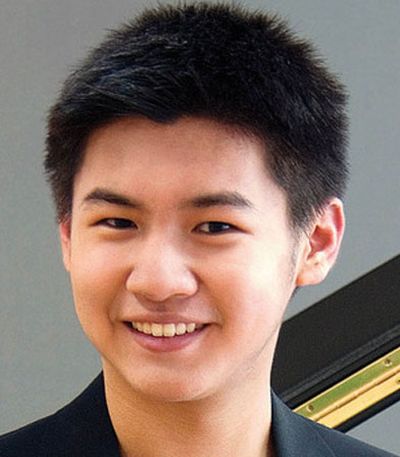Symphony ends season with Beethoven bonanza
Five concertos over two days feature 18-year-old pianist

Conductor Eckart Preu and the Spokane Symphony Orchestra will join with acclaimed pianist Conrad Tao for two concerts to close the 2012-13 season. The 18-year-old superstar will perform all five of the Piano Concertos by Ludwig van Beethoven.
On Saturday, Piano Concertos Nos. 1, 2, and 4 will be performed. The Mother’s Day matinee features Nos. 3 and 5. Tao performed all five concertos with the Symphony of the Americas during April in Ft. Lauderdale, Fla.
In a symphony news release, Preu predicted, “This last concert of the 2012-13 season will be like a walk-off home run by the orchestra.”
In a telephone interview, Tao said his upcoming visit to Spokane will mark his first trip to Washington and his first time working with Preu. He’s looking forward to sharing the Beethoven works with the Spokane audience. “I would like the audience to experience and remember what a Beethoven sound is like, the diversity and unity in each concerto, the approach in style, and a feeling for the significance of these works,” he said.
Tao is a music student in a combined program at Columbia University and The Julliard School of Music while also studying musical composition at Yale University. He has been commissioned by the Dallas Symphony Orchestra to compose a work to honor the 50th anniversary of John F. Kennedy’s assassination to be premiered this November.
“It is quite interesting to think about the reverberation of an event that happened over 30 years before I was born,” Tao said. “I want the music to be a reflection on the historical narrative.”
The Detroit Free Press hailed Tao’s January 2012 performance of Camille Saint-Saëns’ Piano Concerto No. 2 with the Detroit Symphony as “a blazing debut … a performance no less seductive in its lyrical beauty than hair-raising in its technical brilliance.”
Piano Concerto No. 1 in C Major, Op. 15, and Piano Concerto No. 2 in B-flat Major, Op. 19, are both indebted to the musical legacy of Franz Josef Haydn and Wolfgang Amadeus Mozart. However, especially in No. 2, there is a glimmer of Beethoven beginning to express his own musical personality.
Symphony organizers, in news release, said “Beethoven broke some important new ground with” Piano Concerto No. 4 in G major, Op. 58. “The innovations were not well received by the audience,” the release noted. “The great work fell into neglect until (Felix) Mendelssohn revived it in 1836 and performed it frequently thereafter.”
Beethoven scholar Antony Hopkins has written that Beethoven “came of age” writing Concerto No. 3 in C minor, Op. 37. “The work is essentially forward looking and might be said to have laid the foundations on which the great romantic concertos of the nineteenth century were ultimately to be built.”
Beethoven composed Concerto No. 5 in E flat major, Op. 73 (“Emperor”) during the siege of Vienna by the French in 1809. Under dangerous conditions Beethoven not only created one of the great monuments of classical music but also composed the Piano Sonata, Op. 81a (“Les adieux”), and the String Quartet in E flat, Op. 74 (“Harp”).
The name “Emperor” was not Beethoven’s idea but was created by one of his publishers without the composer’s approval.